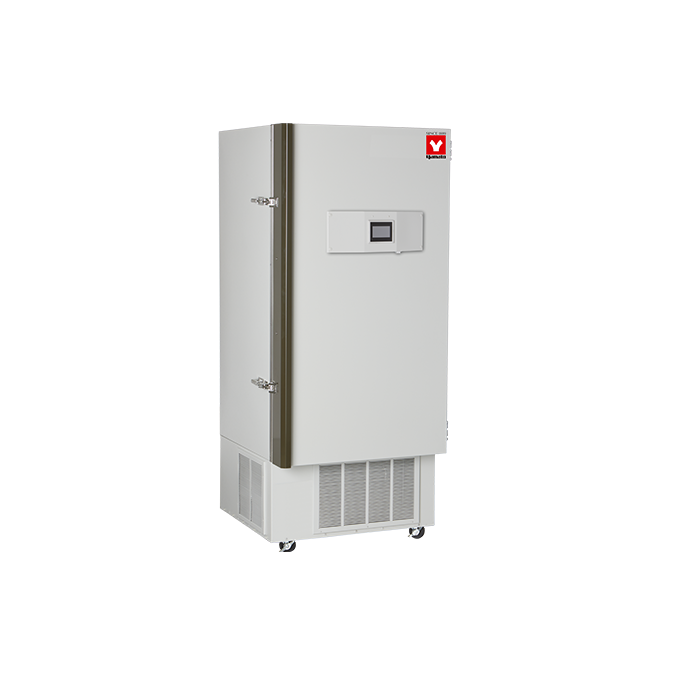Choosing the Right Laboratory Freezer: Key Considerations and Types
Posted by Maxi Scientific on Aug 4th 2024
When it comes to selecting a laboratory freezer, making an informed decision is crucial. Laboratory freezers are essential for preserving samples, reagents, and other critical materials. The right choice can ensure sample integrity and operational efficiency, while the wrong one can lead to costly mistakes. Here's a comprehensive guide to help you navigate through the considerations and types of laboratory freezers available.
Key Considerations
- Temperature Range:
- Purpose: Different samples and reagents require different storage temperatures. Determine the specific temperature range needed for your materials.
- Types: Standard laboratory freezers typically operate around -20°C, while ultra-low temperature (ULT) freezers can go down to -80°C or lower.
- Capacity and Size:
- Space Availability: Assess the available space in your lab. Ensure that the freezer's dimensions fit your allocated area.
- Storage Needs: Estimate the volume of samples you need to store. Overcrowding can compromise airflow and temperature stability.
- Energy Efficiency:
- Operational Costs: Energy-efficient freezers can significantly reduce electricity bills and environmental impact.
- Features: Look for models with advanced insulation, efficient compressors, and eco-friendly refrigerants.
- Temperature Stability and Uniformity:
- Consistency: Ensure the freezer maintains a stable temperature, even with frequent door openings.
- Monitoring: Opt for freezers with reliable temperature monitoring and alarm systems to alert you of any deviations.
- Defrosting Mechanism:
- Manual vs. Automatic: Manual defrosting requires regular maintenance, while automatic defrosting is more convenient but may cause slight temperature fluctuations.
- Application: For sensitive samples, manual defrosting might be preferable to avoid temperature variations.
- Security Features:
- Access Control: Freezers with lockable doors and access codes can prevent unauthorized access.
- Alarm Systems: Built-in alarms for power failures, temperature deviations, and door ajar conditions are essential for protecting valuable samples.
- Durability and Build Quality:
- Materials: High-quality materials and robust construction ensure longevity and reliable performance.
- Brand Reputation: Consider reputable brands known for manufacturing reliable and durable laboratory equipment.
- Cost and Warranty:
- Budget: Balance your budget with the features and reliability you need.
- Warranty and Support: A good warranty and responsive customer support can save you time and money in the long run.
Types of Laboratory Freezers and Their Use Cases
- Upright Freezers:
- Description: Similar to household refrigerators, upright freezers have shelves and compartments for organized storage.
- Use Cases: Ideal for labs with limited floor space and for storing samples that need to be accessed frequently.
- Chest Freezers:
- Description: These freezers open from the top and generally offer more storage space compared to upright freezers.
- Use Cases: Suitable for bulk storage of samples that do not require frequent access. They often maintain temperature stability better than upright models.
- Ultra-Low Temperature (ULT) Freezers:
- Description: Designed to store samples at extremely low temperatures, typically -80°C or lower.
- Use Cases: Essential for long-term storage of sensitive biological samples, including DNA, RNA, proteins, and cell cultures.
- Under-Counter Freezers:
- Description: Compact freezers that fit under laboratory benches or counters.
- Use Cases: Best for labs with limited space needing small-scale storage solutions. Often used for short-term storage of reagents and samples.
- Portable Freezers:
- Description: Small, mobile units that can be easily transported.
- Use Cases: Ideal for fieldwork or temporary storage needs, ensuring sample integrity during transportation.
- Explosion-Proof Freezers:
- Description: Specially designed to store flammable or volatile substances safely.
- Use Cases: Used in labs working with hazardous chemicals to prevent explosions and ensure safety.
- Cryogenic Freezers:
- Description: Utilize liquid nitrogen to achieve extremely low temperatures, often below -150°C.
- Use Cases: Necessary for preserving cells, tissues, and other biological samples for long-term research.

